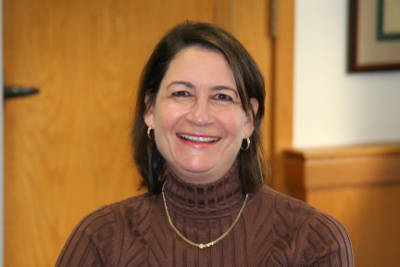 The Honorable Judge Suzanne Chanti, Lane County Circuit Court Judge
The Honorable Judge Suzanne Chanti, Lane County Circuit Court Judge
Litigation is the process of resolving conflict through the justice system. That is what lawyers who call themselves litigators do. The sine non qua of litigation is the jury trial. Yet, many litigators have never tried a case to a jury and many more have had so few jury trials that they have been unable to efficiently and effectively build on those experiences. Consider the state court statistics for 2001: In that year, statewide, 43,444 filed civil cases (excluding small claims, domestic relations and FED cases) terminated. Of those, 1097 terminated by trial. Of those trials, 701 were tried to a court and 396 were tried to a jury. In 2011 the number of terminated civil cases totaled 70,797. Of those cases, 880 were terminated by trial. Of those trials, 709 were bench trials and 301 were to a jury. Statistics for the intervening years are similar and there is no reason to think that the percentage of cases tried to a jury has increased in the past five years. 1
A lot has been written about the disappearing jury trial. Some people think that the lack of civil jury trials is, on balance, a positive change. Indeed, despite the historical importance of the civil jury trial to the justice systems of many countries, including England, today those countries have essentially abandoned the practice. The United States remains the only country in the world where the right to a civil jury trial is guaranteed. Even with that right, it is clear that the vast majority of filed cases settle. Settlement is a more cost effective alternative to trial, it gives the parties certainty and, in some cases, earlier resolution. Even so, it seems to me that some cases, even some cases that are settled, would be better resolved through a jury trial.
The lack of jury trials in Oregon has significant detrimental consequences to our justice system. This is not the time for me to detail the importance of jury trials to the health of our justice system, our form of government and our communities. In any event, I could certainly offer no better insights on this score than those made by Justice Brewer in his essay on Access to Civil Justice in the July 2015 Judge’s Corner.
Today I focus on the importance of trial experience to the litigator. I then offer some suggestions on how litigators might try more cases.
Lawyers And Their Clients Would Benefit From Trying More Cases
We know from our own life experiences that good health requires exercise. Additionally, people learn by doing and most of us subscribe to some form of the old adage, practice makes perfect. Those same principles apply to jury trials. When jury trials are few and far between, the trial skills of lawyers and judges are not sufficiently exercised to keep those skills in robust health. When lawyers rarely try cases, trials become more about learning anew than honing skills built over time.
Trial experience makes a lawyer a better litigator-by a lot. Trials teach lawyers what is important in a case. They force lawyers to focus on what is essential and what is distracting. Trials teach priority and order. Trials teach lawyers how to take a deposition, what discovery is important, and how to use the rules of evidence better than any CLE. Trials greatly enhance lawyers’ ability to think on their feet and to feel comfortable in the courtroom.
Lawyers with little trial experience may settle cases rather than go to trial because they are afraid of trying a case. Settlement amounts may reflect that inexperience rather than the true value of the case. What is more, lawyers who do not try cases may not get the settlement offers they would get if their opponent believed they would take the case to trial.
Additionally, past verdicts provide information about what a jury is likely to do in a case. The fewer jury verdicts, the less meaningful the information. Without that information, the estimates about damages, especially noneconomic damages, may be wholly divorced from current community standards. A lawyer who has a history of trial experiences has more confidence when it comes to valuing a case because the lawyer has better information to draw from, including a better sense of how the case’s strengths and weaknesses would play out during trial.
In those rare cases when a case does go to trial, it is often because the case is particularly difficult, because a lot is at risk or because of the client’s needs and expectations. This is the time when quality trial experience is most needed. Obviously, a lawyer with little or no trial experience in this situation is at a distinct disadvantage.
Finally the fewer civil jury trials there are, the less experience the judicial system has with civil jury trials. The judicial system needs to be well practiced in handling civil jury cases to assure that the process is efficient and effective. The better the case is tried, the more positive affect the trial will have on our justice system overall and, of course, the more likely clients and jurors will be satisfied with their experience and leave the experience with a high regard for our judicial system.
All of this is to suggest that you consider trying more cases. Here are a few suggestions on how you might do that.
1. Consider using the expedited jury trial process allowed under UTCR 5.510
The expedited jury trial process has a number of features that allow lawyers to try cases more quickly and less expensively. The parties must agree to the expedited designation. Such a designation exempts the case from mandatory arbitration. The process is designed to limit costly discovery. Absent agreement, after the case is designated, each party may take no more than two depositions and serve no more than one set of requests for production and one set of requests for admissions. The case is tried within four months to a jury of six. This process gives lawyers a great opportunity to hone their atrophied or nascent trial skills. The process affords litigants, especially in small stakes cases, the opportunity to have their day in court and the benefit of a jury decision in their case. It gives interested parties valuable information about community standards with respect to certain types of cases. It does all of this while substantially limiting the cost of litigation.
2. Litigate wisely with an eye toward trying the case efficiently.
If your case is not appropriate for the expedited jury process, consider cutting the expenses of the case down to the essentials and taking the case to trial. The cost of litigation can be reduced by skillfully limiting discovery. Take measured steps regarding what depositions must be taken and what discovery must be had. Consider not deposing all or any of the major players in your opponent’s case (In doing so you save money and may also benefit by not educating the witness about your concerns). If the other side wants more discovery than you think it is entitled and that discovery doesn’t hurt you, provide it instead of incurring fees fighting over it. In other words, don’t contest issues that you could contest but that don’t matter much. Don’t take action because you are worried you will look weak if you don’t. Work the case up on your side. Do an excellent job developing your witnesses and your evidence from sources not in control of the other party. Then try the case. Forty years ago this was a common practice and many of Oregon’s most experienced litigators can recount great successes doing just that. Look for cases where you think this strategy might work, and take the risk.
3. Be willing to try cases that need to be tried.
If your client is game, don’t be afraid of turning down a settlement offer or demand that seems on the cusp of being unreasonable. Sometimes settling feels wrong but the case is settled because of the costs of trial or because of the fear of losing. Usually the cost of trial and the fear of losing are healthy considerations. Still, I would guess that many lawyers have had the experience of feeling that their client was unhappy with the settlement process, felt the settlement was unfair and regretted not having their day in court. In those cases maybe it is better to try the case. In those cases maybe the client would be more satisfied having a jury decision, win or lose, than feeling forced to settle.
Sometimes a client is willing to go to trial but looks to the lawyer for a recommendation. If the lawyer has no or little trial experience, the lawyer’s own fear about going to trial may interfere with an objective recommendation. If you find yourself in that situation, don’t give into the fear. You can learn a lot by going to court and watching trials. You can learn by asking another lawyer who has trial experience to help you. And you can mitigate some lack of experience by preparing well. If you think you have a good case but are afraid of trying it, take the case to trial. Keep in mind that the trial experience is a long term investment and once you try some cases the fear will be greatly reduced.
Once in a while issues in a case beg to be resolved by the voice of the community. These are the cases brought or defended on principles larger than the monetary value of the case. These are cases where the true value of the case is not in dollars but in the public revelation and resolution of the issue. When your client is willing and it is financially possible, take the risk and try those cases.
4. Take cases with an eye toward trying them.
Consider purposefully taking cases with an eye toward trying them even if that means that you or your firm may lose money on the case and even if that means you have to learn a new area of the law. In my observation one of the reasons lawyers are not getting trial experience is because they are focusing on the cases they believe are most lucrative. That may mean that they take small cases with the intention of settling them quickly or it may mean that they take high value cases with the intention of working them up and settling them for large amounts. Consider purposefully take some cases where it is expected that the case will need to be tried. This might mean that the lawyer takes a case that the lawyer ordinarily would not take. Even if the case does not directly pay for itself, the trial experience will benefit the lawyer for the rest of the lawyer’s career and will also benefit all current and future clients.
5. Take cases through Legal Aid or on another pro-bono basis with an eye toward trying them.
Legal Aid is always in need of volunteer lawyers to represent people who need legal representation and do not have the means to pay for it. Those folks have all sorts of problems that could result in jury trials. Contact your Legal Aid office and let the people working there know that you are particularly interested in representing people with litigation cases that may lead to a trial. Perhaps they have been sued. Perhaps they have a claim that has little financial upside. Perhaps they are involved in a case that is ordinarily tried to the bench but for which a jury trial is allowed. By representing such a person on a pro bono basis through Legal Aid you are providing access to justice to those who are often foreclosed from getting it, and if the case goes to trial, you will get invaluable trial experience.
Similarly, there are public interest law firms and organizations that focus on certain types of law and handle cases that could result in jury trials. Find ones that you are interested in supporting and offer your services. Tell them that you are willing to try cases when the need arises. If you feel you don’t have enough trial skill, tell them that you would like to volunteer your time on a case that is likely to go to trial as a support to the lawyer who will be trying it. Again, this will take time and it will not result in direct financial gain. Nonetheless, the trial experience you get will be of value to you for the rest of your career.
6. Seek mentoring from lawyers who try cases.
There are lawyers who are known for their trial experience and for frequently trying cases. Seek mentoring from those lawyers. Build a relationship and see if you can be of assistance in a trial. If there are lawyers in your firm who are getting ready for trial, ask to work on the case. Ask to second chair the trial, or to be given the opportunity to do one or two direct or cross examinations of a witness. Ask to attend the trial.
7. Make trial experience an important part of your firm culture.
If you are a partner in a litigation firm, do what you can to promote trial experience for your associates and partners who have little trial experience. It may mean assigning a lawyer to second chair a case that includes the lawyer doing substantive work, or assigning a lawyer to conduct a direct or cross examination of a particular witness. Encourage lawyers in your firm to use the expedited jury process, to seek trial experiences by taking cases that are not necessarily your firm’s bread and butter or by doing pro-bono work. The only way lawyers will actively seek to try cases is if they feel that doing so is seen as valuable to the other lawyers in their firm. If lawyers fear that they will be “punished” if they try a case that does not turn a profit or costs the firm money, they are unlikely to take the risk. Gaining trial experience has to be a value in the firm culture. Those who try cases need to be rewarded for gaining that experience. Encourage lawyers to take more cases to trial and structure your evaluations of lawyers in your firm in a way that rewards those efforts even if the case does not turn a profit or costs the firm money.
1 See, http://courts.oregon.gov/OJD/OSCA/pages/2011statistics.aspx
 The Honorable Eve L. Miller, Clackamas County Circuit Court
The Honorable Eve L. Miller, Clackamas County Circuit Court The Honorable Lisa Greif, Jackson County Circuit Court
The Honorable Lisa Greif, Jackson County Circuit Court The Honorable Kirsten E. Thompson, Washington County Circuit Court
The Honorable Kirsten E. Thompson, Washington County Circuit Court The Honorable Judge Richard Barron, Presiding Judge, Coos/Curry County Circuit Court
The Honorable Judge Richard Barron, Presiding Judge, Coos/Curry County Circuit Court The Honorable Judge Suzanne Chanti, Lane County Circuit Court Judge
The Honorable Judge Suzanne Chanti, Lane County Circuit Court Judge